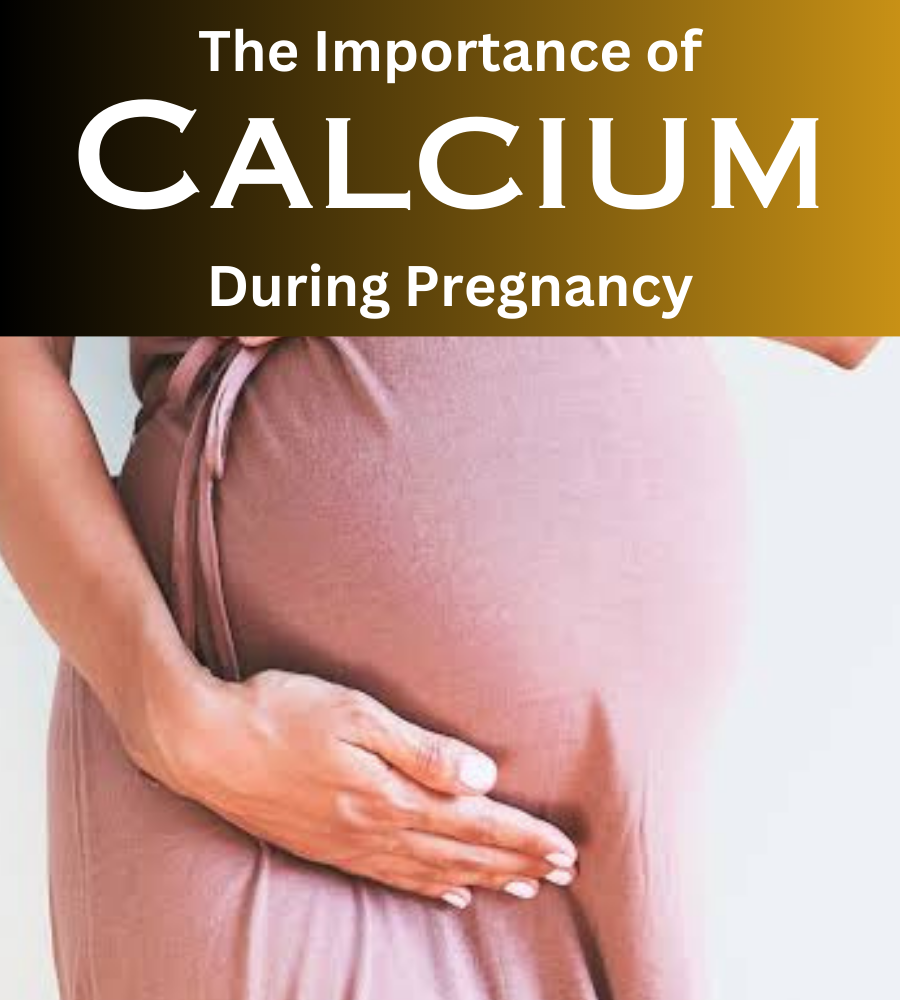Pregnancy is a transformative and crucial period in a woman’s life, requiring optimal nutrition for the health and development of both the mother and the baby. Among the essential nutrients, calcium stands out as a key mineral that plays a vital role during pregnancy.

Adequate calcium intake is essential for various aspects of fetal development, maternal health, and overall well-being. In this article, we will explore the importance of calcium during pregnancy and its numerous benefits for both the mother and the growing baby.
Calcium Deficiencies during Pregnancy
Here are some deficiency can be occurs during pregnancy:
Fetal Bone Development
Calcium is of utmost importance for the formation and growth of the baby’s bones and teeth. The developing fetus relies on an adequate supply of calcium to build a strong skeletal system. Insufficient calcium intake during pregnancy may hinder proper bone development and increase the risk of skeletal abnormalities in the baby.
Maternal Bone Health
During pregnancy, the mother’s body provides the necessary calcium for the growing fetus. If the mother’s dietary calcium intake is inadequate, her body may withdraw calcium from her own bones to meet the demands of the baby. This can lead to maternal bone loss and increase the risk of conditions like osteoporosis later in life. Consuming sufficient calcium during pregnancy helps preserve maternal bone density and reduces the long-term risk of bone-related complications.
Read More: Eating Too Many Mango May Cause These Health Problems
Muscle and Nerve Function
Calcium is essential for proper muscle and nerve function in both the mother and the baby. It facilitates the contraction and relaxation of muscles, including the uterus during labor. Adequate calcium levels ensure the smooth functioning of the nervous system, allowing proper communication between nerves and muscles.
Blood Clotting
Normal blood clotting is crucial during childbirth to prevent excessive bleeding. Calcium is a vital component of the clotting process. Adequate calcium levels ensure effective clotting and minimize the risk of excessive bleeding, which can be life-threatening to both the mother and the baby.
Prevention of Pregnancy-Induced Hypertension
Pregnancy-induced hypertension, or preeclampsia, is a serious condition characterized by high blood pressure and organ damage. Studies have suggested that sufficient calcium intake may help reduce the risk of developing preeclampsia. By maintaining proper blood pressure regulation, calcium contributes to a healthier pregnancy for both the mother and the baby.
Prevention of Maternal Bone Loss
Pregnancy and breastfeeding can lead to temporary bone loss in mothers due to the increased demands for calcium. Adequate calcium intake during these periods helps prevent excessive bone loss and preserves maternal bone density, ensuring long-term bone health.
Meeting Calcium Requirements
To meet the recommended daily intake of calcium during pregnancy, which is about 1,000 milligrams (mg) per day for women aged 19-50, a balanced and varied diet is crucial. Good dietary sources of calcium include dairy products (milk, yogurt, cheese), fortified plant-based milks, leafy green vegetables (such as broccoli, kale, and spinach), nuts, and seeds. It is advisable to consult with a healthcare professional to determine the appropriate calcium intake for individual needs.
In some cases, healthcare providers may recommend calcium supplements to ensure adequate intake. However, it is important to consult with a healthcare professional before starting any supplements during pregnancy, as they can provide personalized guidance based on individual needs and considerations.
Conclusion
Calcium is an essential nutrient during pregnancy, playing a vital role in fetal bone development, maternal bone health, muscle and nerve function, blood clotting, prevention of pregnancy-induced hypertension, and the prevention of maternal bone loss. By prioritizing calcium intake through a balanced diet or, if necessary, with the guidance of healthcare professionals, pregnant women can support the optimal development of their baby while safeguarding their own health.




